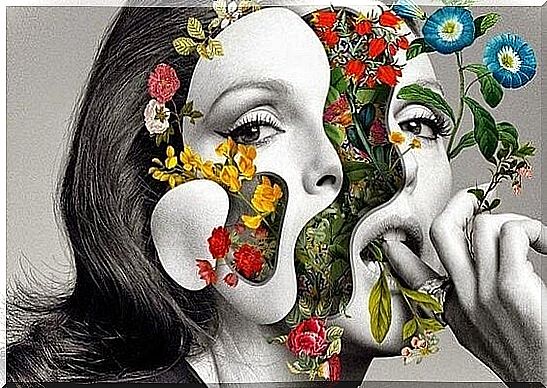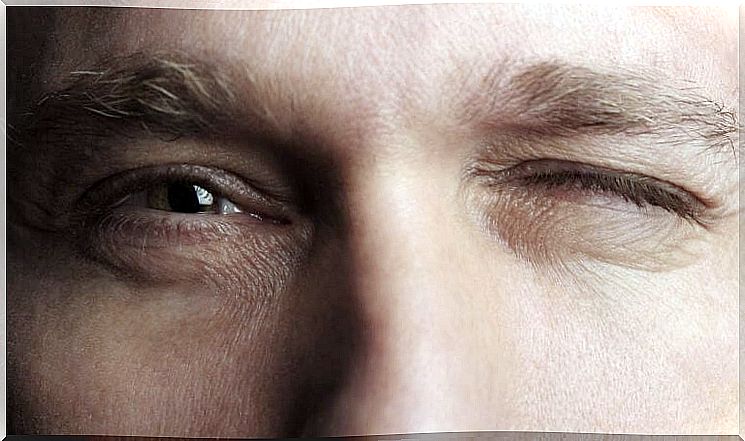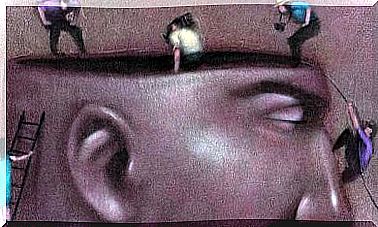5 Expressions That Promote Mistrust

There are social situations where the interaction is short-lived. Other people form an idea about us that is partly conscious and partly not. They form an opinion based on what we say, but also based on what we express through our expressions and attitudes, which can determine whether we promote mistrust or not.
This would not be a problem if it were not for the fact that many of these short-lived moments are also extremely important. This can happen in a job interview or a private meeting to establish contacts that interest us. And, why not, the situations where we want to give a good impression on someone who interests us emotionally. In this case, we want to give the other other person an experience that makes them have a nice and positive feeling about us.
Therefore, it is worth learning to recognize our expressions and decode what they mean. It is also important that we can polish them so they will play to our advantage when the situation demands it. To achieve this, we are in the process of reviewing the expressions that may harm us and those that are good to recreate.
To bite your lower lip, one of the “give away” expressions
When you bite your lower lip, you are somehow communicating with a certain degree of disagreement with what is coming out of your mouth. Without you or anyone else being aware of it, it is one of the expressions that will be interpreted as doubtful or false in terms of what you say.

This expression also indicates that it is a hidden message. People usually say “I bite my lips so I do not want to talk about this or that thing.” This interpretation is incorrect. When you make that expression, you suggest that there is something you are hiding that will contradict what you said to some degree.
2. To constantly frown
A wrinkled forehead is a sign of anger, irritation or disagreement. The truth is that it is one of those expressions that we make only because of stress most of the time. But there are people who do it so often, that they end up with it remaining in their face.
When we are scared or nervous, we frown. And it can convey a lack of self-confidence, either in the other person or in yourself. We also frown when we want to observe something better or when we set up a defensive position.
3. Blinking often and quickly promotes mistrust
This is one of the most difficult expressions to control. This is because it is an almost automatic reaction to situations that cause nervousness. We normally blink 14 to 17 times a minute. But when we are nervous, the number increases significantly.

The worst part is when we start blinking a lot and very fast. Our interlocutor’s attention will begin to focus on our strange expression. It is easy for them to stop listening to what we say and begin to pay more attention to the uncertainty we express with our eyes.
4. Hiding your hands while talking
Our hands are pure expression. They emphasize, avoid, puncture or complement what you say. This is why, when some people talk and move their hands a lot, others see them as more spontaneous and believable. It creates a sense of sincerity.
On the other hand, when someone hides their hands while talking, this says the exact opposite. It’s like you’re hiding something. It is not easier to hide your hands behind your back, in your pockets, under your desk or on your arms. Doing so sets up a barrier to communication.
5. Not smiling, or laughing all the time – expressions that promote mistrust
To smile is certainly one of the most heartwarming expressions. When someone smiles at you without you realizing it, it helps you become more positive in that conversation. This is a great model for a dialogue that is positive, calm and friendly.

But when someone smiles or laughs all the time, it can have a negative effect. In that scenario, they are expressing nervousness, lack of concentration, or an excessive desire to be accepted. This message is not positive, and will actually be an obstacle for them to really appreciate you.
In all these scenarios, it is not about putting on a hidden or false identity. It is quite the opposite. Through their expression, a person can become much better acquainted with themselves. So, by becoming aware of how they communicate with other people, they can adjust the message they really want to express through their body language, and they can know if they are promoting mistrust or not.







